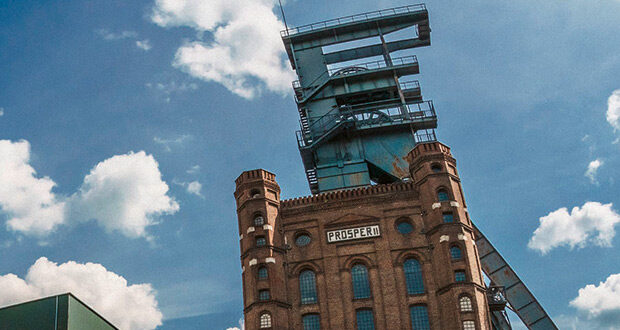Currently, the final operating plan procedure for the termination of the mining supervision for the former Proper II shaft (Figure 1) of the former Prosper-Haniel mine in Bottrop/Germany is underway. Within the procedure, an “orienting hazard assessment” was carried out. The expert recommends prohibiting groundwater extraction there due to the sometimes significant groundwater contamination in some areas. The city of Bottrop has therefore banned both the use and extraction of groundwater in these areas.
The groundwater in the downstream of the Prosper-Haniel mine was already sampled during the phase-out of operations. “We continued to keep an eye on the groundwater as part of the final operating plan procedure. For this purpose, there were measuring points both by us and by the city of Bottrop at Knappenstraße and in the adjacent settlement. Until autumn, the values measured there were only slightly elevated,” says Michael Otto of RAG Montan Immobilien GmbH in Essen, who is responsible for the final operating plan.
As part of the process, the number of groundwater measuring points on the site itself and in the settlement will be expanded step by step. In October, the values measured there were much higher. Otto: “We reported this to the supervisory authority and the city of Bottrop, which has now ordered this precautionary measure.” Essentially, the elevated values are coke ice-specific parameters.
The direction of flow of the groundwater is from east to west. Therefore, several causative factors are possible. Next to the colliery site, there was an old coking plant with various ancillary extraction facilities, such as a petrol factory.
Within the framework of the ongoing final operating plan procedure, solutions for a permanent safeguarding of the contaminated sites must now be developed and implemented so that a risk to the population can be excluded.
Groundwater remediation is already being carried out at several sites in the Ruhr area. Mostly at former coking plant sites that were destroyed in the Second World War. This is one of the eternal tasks in post-mining. (RAG/Si.)

